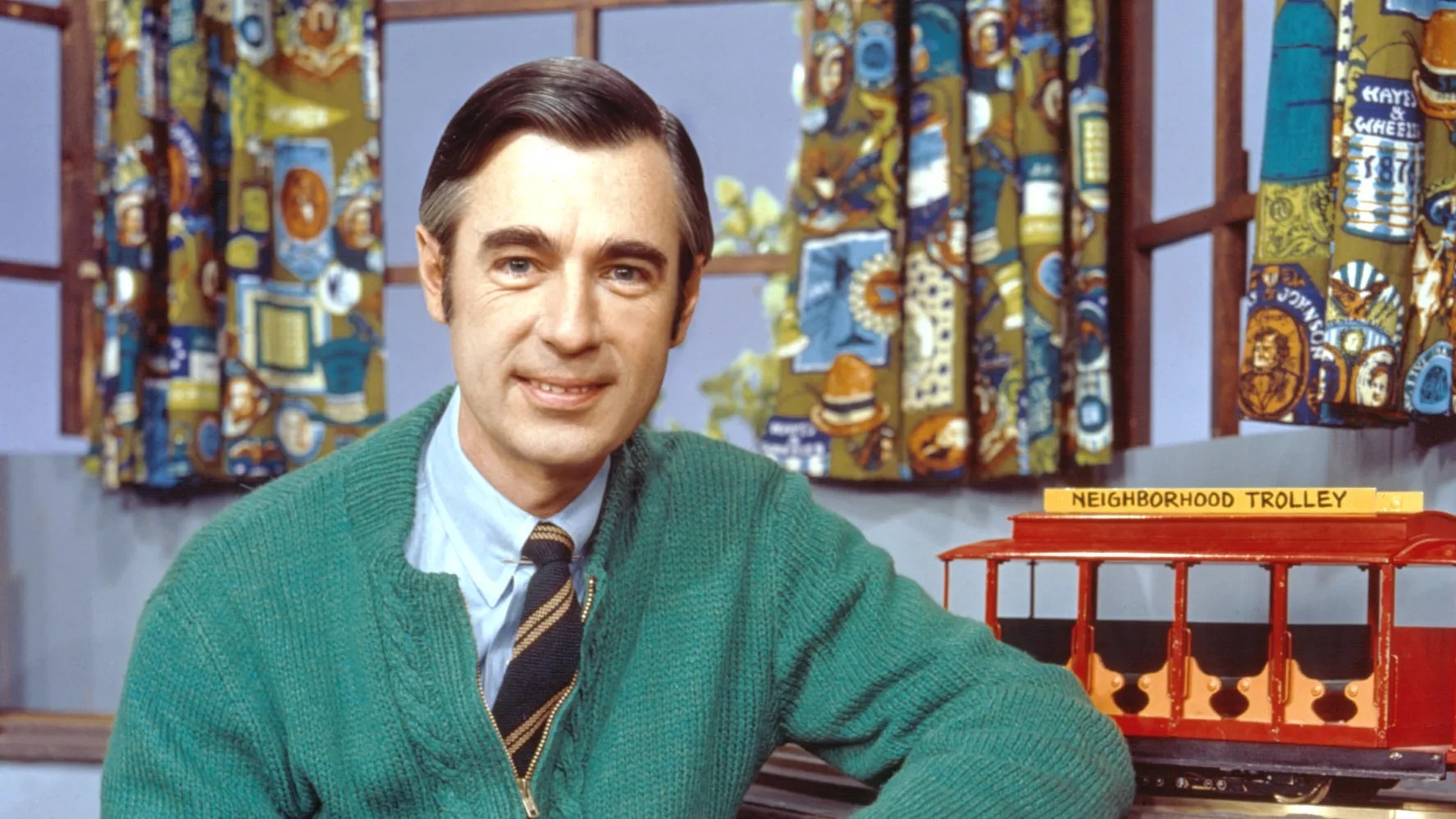
Mr. Rogers, beloved by millions of children and adults alike, remains an enduring symbol of kindness, compassion, and education. His iconic television show, “Mister Rogers’ Neighborhood,” aired from 1968 to 2001 and left an indelible mark on generations of viewers.
In this article, we will explore 43 fascinating facts about Mister Rogers, shedding light on the man behind the familiar cardigan and comforting voice that captivated audiences for decades. From his early life and upbringing to his groundbreaking work in children’s television, Mr. Rogers’ impact on popular culture and education is nothing short of remarkable.
So, sit back and join us on a journey of discovery as we delve into the extraordinary life and legacy of Mister Rogers.
Key Takeaways:
- Mister Rogers, a beloved TV personality, was a talented musician, advocate for children’s mental health, and a symbol of kindness and empathy for generations.
- His iconic show, “Mister Rogers’ Neighborhood,” addressed important topics, featured diverse guests, and left a lasting legacy of love and acceptance.
Mister Rogers’ Neighborhood debuted in 1968.
Created and hosted by Fred Rogers, the beloved television show first aired on February 19, 1968, captivating audiences of all ages for over three decades.
Fred Rogers was an ordained minister.
Before becoming a television personality, Mister Rogers studied theology and was ordained as a Presbyterian minister in 1963.
Mister Rogers always wore sweaters on his show.
His collection of cardigan sweaters became iconic, and he believed that they made him appear more friendly and approachable to his young viewers.
Mister Rogers’ favorite color was blue.
Blue symbolized comfort and calmness to him, and he often incorporated the color into his wardrobe and the set of his show.
He was an advocate for children’s mental health.
Mister Rogers openly discussed emotions and feelings on his show, emphasizing the importance of addressing mental health issues and providing support for children.
Mister Rogers was a talented musician.
He composed over 200 songs for his television show, many of which became beloved classics, such as “Won’t You Be My Neighbor?” and “It’s a Beautiful Day in the Neighborhood.
He was a skilled puppeteer.
Mister Rogers brought his puppet friends to life, including the famous Daniel Striped Tiger and King Friday XIII, using his expert puppeteering skills.
Mister Rogers used his platform to address difficult topics.
From racism to divorce, he tackled sensitive subjects with grace and compassion, helping children navigate through challenging situations.
Mister Rogers was a vegetarian.
He adopted a vegetarian lifestyle as he believed in showing kindness and compassion to all living beings.
He was a strong advocate for public television.
Mister Rogers believed in the power of educational television and fought for funding and support for public broadcasting.
Mister Rogers often fed his fish on the show.
Viewers eagerly anticipated the moments when he would tend to his fish tanks and talk about taking care of living creatures.
Mister Rogers visited the set of Sesame Street.
In 1981, Mister Rogers made a special guest appearance on Sesame Street, joining forces with Big Bird for an unforgettable crossover episode.
He won multiple Daytime Emmy Awards.
Mister Rogers’ Neighborhood received numerous accolades, including multiple Daytime Emmy Awards for Outstanding Children’s Series.
Mister Rogers spoke directly to his viewers.
He was known for his direct and intimate approach, speaking directly to the camera as if having a personal conversation with each child watching.
Mister Rogers often addressed current events.
During his show’s run, he discussed significant events such as the assassination of Robert F. Kennedy and the Challenger space shuttle disaster, providing comfort and context to young viewers.
Mister Rogers was an early advocate for inclusivity.
He featured diverse characters and aimed to include children from all backgrounds, showing the importance of acceptance and diversity.
He had a deep connection with his fans.
Mister Rogers took the time to respond to every piece of fan mail he received, showing his genuine care and appreciation for his audience.
Mister Rogers’ Neighborhood is a cultural icon.
The show has left a lasting impact on popular culture, with references and parodies appearing in various forms of media.
Mister Rogers was a talented painter.
He often showcased his artwork on the show, sharing his love for creativity and encouraging children to express themselves through art.
He was inducted into the Television Hall of Fame.
In 1999, Mister Rogers received this prestigious honor for his outstanding contributions to the television industry.
Mister Rogers’ Neighborhood aired its final episode in 2001.
After more than 30 years on the air, Mister Rogers bid farewell to his viewers with a heartfelt final episode, leaving a void in the hearts of millions.
Mister Rogers had a gentle and soothing voice.
His calming presence and comforting voice were cherished by both children and adults alike.
He had a deep love for his hometown, Pittsburgh.
Mister Rogers often incorporated elements of Pittsburgh’s rich culture and history into his show, celebrating the city’s unique identity.
Mister Rogers played the piano and organ.
Music played a significant role in his life, and he frequently showcased his musical talents on the show.
Mister Rogers was a mentor to future television personalities.
Many individuals who worked with or were inspired by Mister Rogers went on to have successful careers in children’s television.
He received a Lifetime Achievement Award from the National Academy of Television Arts & Sciences.
In 1997, Mister Rogers was honored with this prestigious award for his remarkable contributions to television.
Mister Rogers was a dedicated advocate for early childhood education.
He recognized the importance of early learning and worked to promote educational resources for young children.
Mister Rogers’ Neighborhood had a lasting impact on the lives of its viewers.
Many individuals credit the show with helping them navigate through childhood, teaching them valuable life lessons, and instilling a sense of kindness and empathy.
Mister Rogers’ cardigans and sneakers are exhibited in the Smithsonian’s National Museum of American History.
These iconic items of clothing serve as a reminder of Mister Rogers’ influence and legacy.
He was known for his distinct catchphrase, “Won’t you be my neighbor?”
The phrase became a symbol of Mister Rogers’ warm and inviting nature.
Mister Rogers composed all the songs for his show.
His musical talent allowed him to create memorable and meaningful songs that resonated with his audience.
Mister Rogers’ Neighborhood tackled important issues, such as divorce.
He used his platform to address challenging topics and provide guidance and support for children going through difficult situations.
Mister Rogers’ puppets had distinct personalities.
Characters like King Friday XIII and Daniel Striped Tiger were beloved by viewers and helped teach valuable life lessons.
Mister Rogers was awarded the Presidential Medal of Freedom.
In 2002, he received this highest civilian honor in the United States for his outstanding contributions to society.
He was a mentor to his on-screen successors.
Mister Rogers guided and encouraged future hosts of his show to continue his legacy of kindness and educational programming.
Mister Rogers believed in the power of imagination.
He encouraged children to use their imaginations and explore their creativity through make-believe and pretend play.
Mister Rogers’ Neighborhood featured diverse guests.
From astronauts to musicians, Mister Rogers invited a wide range of individuals to share their talents and experiences with his viewers.
Mister Rogers emphasized the importance of love and acceptance.
He taught his viewers to be kind to others and to embrace differences, spreading a message of love and tolerance.
Mister Rogers inspired generations of children to pursue careers in education and child development.
Many individuals were inspired by Mister Rogers’ dedication to children’s well-being and went on to make a difference in the field.
Mister Rogers left a lasting legacy.
His impact on children’s television, mental health advocacy, and educational programming will continue to be felt for generations to come.
Mister Rogers’ Neighborhood received a Peabody Award.
The show was recognized with this prestigious honor for its outstanding contribution to children’s programming.
Mister Rogers was honored with a U.S. postage stamp.
In 2018, the United States Postal Service released a stamp featuring Mister Rogers, commemorating his positive impact on society.
Mister Rogers’ messages of kindness and empathy are more important than ever.
His teachings continue to resonate with audiences today, reminding us of the importance of empathy, love, and understanding in our daily lives.
Conclusion
In conclusion, Mister Rogers was a beloved television personality who touched the lives of millions with his kindness, compassion, and commitment to empowering children. Through his iconic show, Mister Rogers’ Neighborhood, he taught valuable life lessons, promoted diversity and inclusion, and fostered a sense of community.
With his famous catchphrase “Won’t you be my neighbor?” Mister Rogers invited viewers into his imaginary neighborhood where they could explore important topics like empathy, self-esteem, and dealing with difficult emotions.
Mister Rogers’ legacy continues to live on, and his impact on both children and adults is immeasurable. His ability to connect with people from all walks of life and genuinely care about their well-being is a true testament to his genuine and kind-hearted nature.
Though Mister Rogers is no longer with us, his teachings and lessons continue to be relevant and valuable today. He showed us the power of kindness, compassion, and understanding, and his legacy will forever be cherished.
FAQs
Q: How did Mister Rogers become famous?
A: Mister Rogers became famous through his television show, Mister Rogers’ Neighborhood, which aired from 1968 to 2001. His genuine and kind-hearted nature, coupled with his ability to connect with children, quickly captured the hearts of viewers.
Q: What were some of Mister Rogers’ most memorable moments?
A: Some of Mister Rogers’ most memorable moments include his famous shoe change at the start of each episode, his interaction with his puppet friends, such as Daniel Tiger, and his visits to different places like factories, where he showed viewers how things were made.
Q: Did Mister Rogers have a background in education?
A: Yes, Mister Rogers had a background in education. He earned a degree in music composition and was trained in child development. This background helped him create educational content that was not only entertaining but also beneficial for children’s overall development.
Q: How did Mister Rogers promote important social issues?
A: Mister Rogers used his platform to address important social issues such as racism, disability, and bodily autonomy. He believed in treating every individual with respect and acceptance, and he promoted the idea of embracing diversity and inclusion.
Q: What is Mister Rogers’ legacy?
A: Mister Rogers’ legacy includes his impact on children’s television and his ability to inspire kindness, empathy, and compassion in individuals of all ages. His show continues to be an influential piece of media that promotes the importance of love, understanding, and acceptance.
If you're curious to learn more about Mister Rogers, his life, and legacy, we've got several other captivating articles for you to explore. Uncover mindblowing facts about Fred Rogers himself, or take a closer look at the acclaimed documentaries that pay tribute to this beloved icon. Whether you're a lifelong fan or just discovering the magic of Mister Rogers' Neighborhood, these articles will provide you with a deeper understanding of the man who touched the lives of millions with his gentle wisdom and unwavering compassion.
Was this page helpful?
Our commitment to delivering trustworthy and engaging content is at the heart of what we do. Each fact on our site is contributed by real users like you, bringing a wealth of diverse insights and information. To ensure the highest standards of accuracy and reliability, our dedicated editors meticulously review each submission. This process guarantees that the facts we share are not only fascinating but also credible. Trust in our commitment to quality and authenticity as you explore and learn with us.


